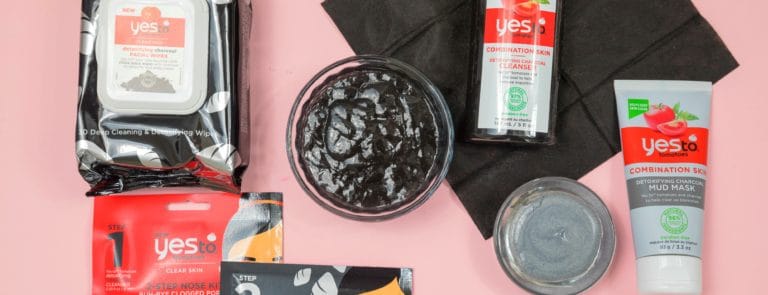15% off €30 or 20% off €40
Code:CHOOSE
9 home remedies for eczema

Wherever you experience eczema on your body, there are remedies you can use to ease the symptoms of this skin condition.
Summary
1What is eczema?
Eczema is a skin condition that causes your skin to become itchy, dry and cracked.
2Different types of eczema
Atopic eczema is the most common type of eczema. ‘Atopic’ is a term used to describe the tendency to develop eczema, asthma and hay fever.
39 natural home remedies for eczema
Have a go at an Oatmeal soak. Tie a cup of oats into a muslin cloth and pop it into the bath. Bathe in the milky water for 15 minutes for full effect.
Eczema (also known as dermatitis) is a dry skin condition that can be uncomfortable for people who contract it.
It varies from person to person and comes in many different forms. It is not contagious so you cannot catch it from someone else.1
One of the main issues with eczema is trying to find ways to remedy the condition. In this article, we’ll be looking at ways you can remedy.
What is eczema?
Eczema is a skin condition that causes your skin to become itchy, dry and cracked.2
Eczema affects people of all ages but is mostly seen in children. It often develops at an early age, but it may also occur later in adult life too.
Usually, it’s a long-term condition, although it may improve significantly and in some cases clear completely, in some children as they get older.
One in five children and one in ten adults in the UK have eczema.
Different types of eczema
Asteatotic eczema
Also known as ‘eczema craquelé’, asteatotic eczema is more common in older people.
Usually, it affects the shins, but it can also affect other areas such as:
- Thighs
- Arms
- Stomach
- Back
Atopic eczema
As mentioned above, atopic eczema is the most common type of eczema.
‘Atopic’ is a term used to describe the tendency to develop eczema, asthma and hay fever.
The most distinctive symptom of atopic eczema is the ‘itch’, which at times can become almost unbearable.
In serious cases it may lead to:
- Sleep loss
- Frustration
- Stress
- Depression
Contact dermatitis
Contact dermatitis, or contact eczema as it’s known is the name given to types of eczema that occur as a result of contact with irritants or allergies in the environment.
It affects 9% of the UK population and is the most common type of work-related skin disease.
Discoid eczema
Discoid eczema is quite common. It can occur in people with and without a history of atopic eczema.
It is distinctive in its appearance as it has oval or round lesions, which can be very itchy.
Ear eczema
Eczema of the ear can be an extremely irritating and painful condition at times.
It can affect the entire ear including the ear lobes, the ear opening and ear canal.
It can range from a slight dryness to severe skin loss and soreness around the top of the ear.
In severe cases, it can affect internal as well as external parts of the ear.
Eczema around the eyes
There are a number of conditions and types of eczema that affect the eye and the eye area.
9 home remedies for eczema
1. Go with your gut
Eczema is an inflammatory condition and it’s thought having too many ‘bad bacteria’ in the gut may increase inflammation in the body.
One study found that some types of bacteria were more abundant in infants with eczema and some in those without.
A healthy immune system needs a wide range of good bacteria, and you can find these occurring in fermented foods, such as:
- Kombucha
- Sauerkraut
- Tempeh
- Miso
Other foods that are great for your gut include Jerusalem artichokes, asparagus, leeks, onions, bananas and polenta. So tuck in!
2. Spice up your life
Turmeric is a herbal Ayurvedic remedy that has been proven to lessen eczema symptoms.
Several studies have shown a significant improvement in the severity of the effects of skin disease in people treated with turmeric.
One 2015 study from Pakistan found that topical formulations containing turmeric eased itchiness, swelling and redness in eczema patients.
Turmeric can be taken in powder, capsule or tablet forms and even in tea, and of course, you can use turmeric as a delicious spice for your food.
Daily doses of 3 to 4g have been used in eczema research studies, with positive results.
Handpicked article: 15 turmeric benefits for skin
3. Get some fat-isfaction
People with eczema often have significantly lower levels of omega-3 fatty acids in their systems.
Increasing omega-3 in the diet can help reduce inflammation in the body and significantly improve the symptoms of itchy skin.
Boost meals with nuts and seeds, especially walnuts, flaxseeds, chia seeds, ground linseed and hemp seeds and oily fish.
4. Vitamin E
As well as helping protect your cells against free radicals, vitamin E plays an important role in the functioning of the immune system.
In a study of schoolchildren, those with the highest level of vitamin E-related compounds in their blood experienced 67 per cent less risk of eczema and asthma than children with the lowest levels.
Wheatgerm oil, sunflower seeds, almonds, hazelnut and sunflower oil and pine nuts are all great sources of vitamin E, so add these skin soothers to your diet.
5. The sweet stuff
When pathogenic bacteria penetrates the skin, eczema can develop. The strong antimicrobial elements of Manuka honey can help kill off these unwanted organisms, in turn reducing itching and infection.
As well as being useful applied topically, in a mixture of equal amounts of honey, beeswax and olive oil, Manuka honey can be hugely beneficial taken internally.
Its antibacterial properties help to reduce inflammation, which in turn can help the body heal itself, also reducing the symptoms of eczema.
6. A soothing bath
Sometimes, you need to take it back to basics.
If you have tried everything but are still coming up cracked, then have a go at an Oatmeal soak. This doesn’t actually involve immersing yourself in a giant tub of porridge but it does work by draining the goodness out of the oats to instantly soothe and moisturise your skin.
Tie a cup of oats into a muslin cloth and pop it into the bath. Bathe in the milky water for 15 minutes to feel the full effects.
7. Eliminate allergens
Could an allergic reaction be what’s causing your eczema?
Foods such as milk, peanuts, fish, soy, eggs, wheat, citrus and gluten have all been known to trigger symptoms.
Try eliminating each food for around a month, then slowly reintroducing it, to see how your eczema reacts.
8. Don’t scratch
Eczema is often itchy and gets very tempting to scratch. Scratching usually damages the skin and can result in more eczema occurring.
It’s important that you try and reduce scratching where possible. Deep scratching can cause bleeding and without attention can become scarred.
You may want to try reducing scratching by gently rubbing the affected area with your fingers instead.
Here are 3 tips that may help:
- Keep your nails short and clean to reduce damage from habitual scratching.
- Keep your skin covered with light clothing to reduce damage
- If your baby has atopic eczema, anti-scratch mittens may help stop them from scratching affected areas of skin.
9. Avoid triggers
Eczema can flare-up for no apparent reason, but there may also be obvious reasons that it may get worse.
For example:
- Certain fabrics may irritate your skin, so it’s a good idea to avoid wearing anything that will aggravate it further. Try using fine-weave clothing or material such as cotton.
- Heat may be causing your eczema to get worse. Keep rooms cooler in your home, particularly your bedroom.
- Try to avoid using soaps or detergents that may affect your skin
Handpicked article: What is eczema?
Last updated: 19 August 2021
The advice in this article is for information only and should not replace medical care. Please check with your GP or healthcare professional before trying any supplements, treatments or remedies. Food supplements must not be used as a substitute for a varied and balanced diet and a healthy lifestyle.



